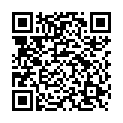|
|
|
| Module code: MBG21-1 |
|
|
6S (6 hours per week) |
|
7 |
| Semester: 1 |
| Mandatory course: yes |
Language of instruction:
German |
Assessment:
Exam (Introduction to the Theory of Science) / Course work (Academic Work Techniques)
[updated 15.11.2021]
|
MBG21-1 (P311-0193, P311-0194) Management and Professional Pedagogy in Health Care, Bachelor, ASPO 01.10.2021
, semester 1, mandatory course
|
90 class hours (= 67.5 clock hours) over a 15-week period.
The total student study time is 210 hours (equivalent to 7 ECTS credits).
There are therefore 142.5 hours available for class preparation and follow-up work and exam preparation.
|
Recommended prerequisites (modules):
None.
|
Recommended as prerequisite for:
MBG21-10 Methodologies II
MBG21-11 Healthcare Management II
MBG21-12 Health Care and Nursing Legislation II
MBG21-13 Health Care Management III
MBG21-14 Vocational Pedagogy in Health Care III
MBG21-15 Evidence-Based Medical Care and Nursing
MBG21-16 Study Project
MBG21-17 Health Care Management IV
MBG21-18 Vocational Pedagogy in Health Care IV
MBG21-19 Academic Methodologies and Study Skills III
MBG21-7 Health Care and Nursing Legislation I
MBG21-8 Vocational Pedagogy in Health Care II
MBG21-9 Methodologies I
MBG21.B.51 Advanced Didactics and Methodology
MBG21.B.52 Developing a Curriculum
MBG21.B.53 Measuring and Assessing Competence
MBG21.B.54 Educational Guidance in (Vocational) Adult Education
MBG21.M.41 Management in Hospitals
MBG21.M.42 Management of Inpatient and Outpatient Facilities
MBG21.M.43 Change Management
[updated 04.12.2025]
|
Module coordinator:
Prof. PhD Petra Riemer-Hommel |
Lecturer:
Jessica Joachimsen, M.A.
Dr. Sindy Lautenschläger
[updated 04.12.2025]
|
Learning outcomes:
Introduction to the Theory of Science
After successfully completing this module, students will have the following skills and competencies:
.
Knowledge and Comprehension:
Students will be able to present subject matter and basic concepts from the thoery of science and distinguish between them.
They will be able to examine basic questions of epistemology and science theory critically.
They will be able to describe different epistemological and scientific currents.
They will be able to justify the influence of scientific theoretical currents on research methodology and methodological choices.
They will be able to discuss the need for research ethics and apply the expertise gained in this module to scholarly debate.
The use, application, and generation of knowledge:
Students will be able to apply basic knowledge about currents in scientific theory to the research process and justify which research methodology(s) is/are appropriate for answering a research question.
Scientific Self-Concept/Professionalism:
Students will understand their own learning as an active and self-directed process and be able to optimize their own learning behavior.
Academic Work Techniques:
After successfully completing this module, students will have the following skills and competencies:
.
Knowledge and Comprehension:
Students will be able to name different types of texts used in science and differentiate between them.
They will be able to differentiate scientific from non-scientific texts based on specific criteria.
They will be able to describe methods and procedures of scientific work.
They will be able to formulate a (clinically) relevant, scientifically answerable question based on a concrete or described topic/problem (know different schemes e.g. ECLIPSE, PICo, PICO, PICOS, SPICE, SPIDER, MIP, BeHEMoTh).
They will be able to research and evaluate scientific literature in sources relevant to their disciplines.
The Use, Application, and Generation of Knowledge:
Students will be able to apply scientific working methods to various practical situations and beyond in the course of their studies and thus, deepen their methodological skills.
Scientific Self-Concept/Professionalism:
Students will be able to critically reflect on their individual learning experiences in the area of scientific work during the course of study.
They will be able to continuously develop their own scientific work skills using current findings and research results.
Students will develop an understanding for scientific work.
[updated 15.11.2021]
|
Module content:
Introduction to the Theory of Science
1. Students will be able to present subject matter and basic concepts from the thoery of science and distinguish between them.
2. Major questions in the theory of science and epistemology
Knowledge vs. scientific knowledge
Concept of truth
Epistemological foundations and assumptions
Participant and observer perspective
3. Research paradigms and process
3. Scientific approaches
Empirical-analytical theoretical approaches
Value judgement dispute
Normative-ontological theoretical approaches
5. Research ethics
Academic work techniques
1. Formulating questions
2. Structuring texts
Types of texts and their intention
The formal structure of texts
Publication parameters and the classification of academic texts
3. Prerequisites for dealing with literature
Libraries
Using libraries
Sources for literature searches
Literature searches: Searching for and finding literature
Finding full texts
Utilizing information
4. Scientific methods of citation
5. Evaluation of term papers
6. Designing power point and poster presentations
[updated 15.11.2021]
|
Teaching methods/Media:
Blended learning
[updated 15.11.2021]
|
Recommended or required reading:
Recommended literature will be announced at the beginning of the course.
[updated 15.11.2021]
|

